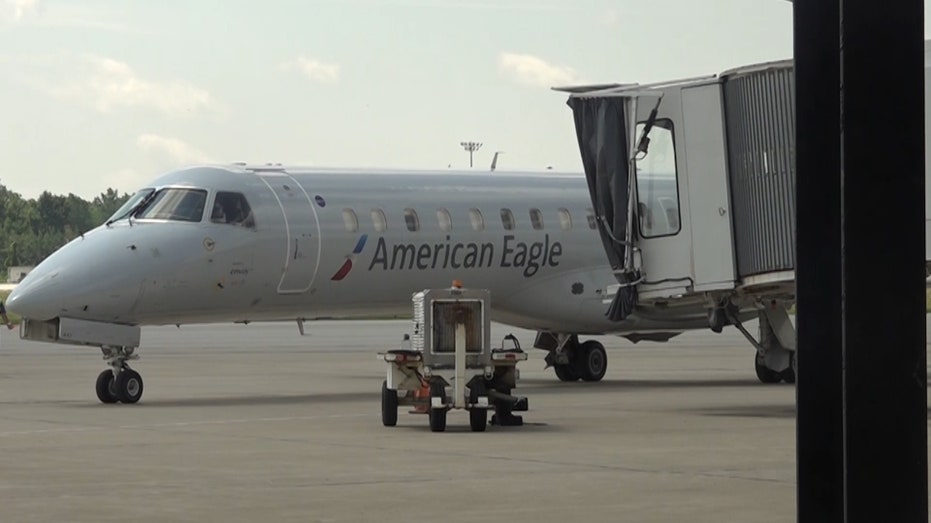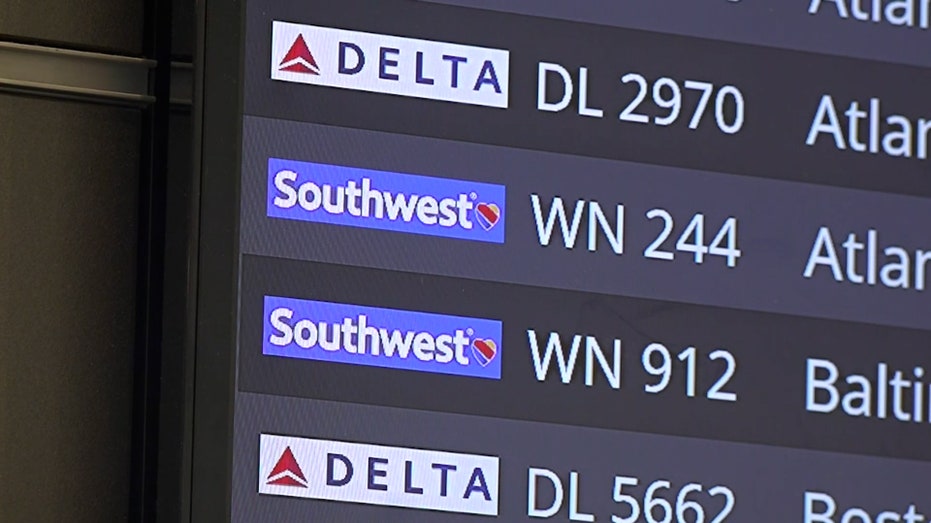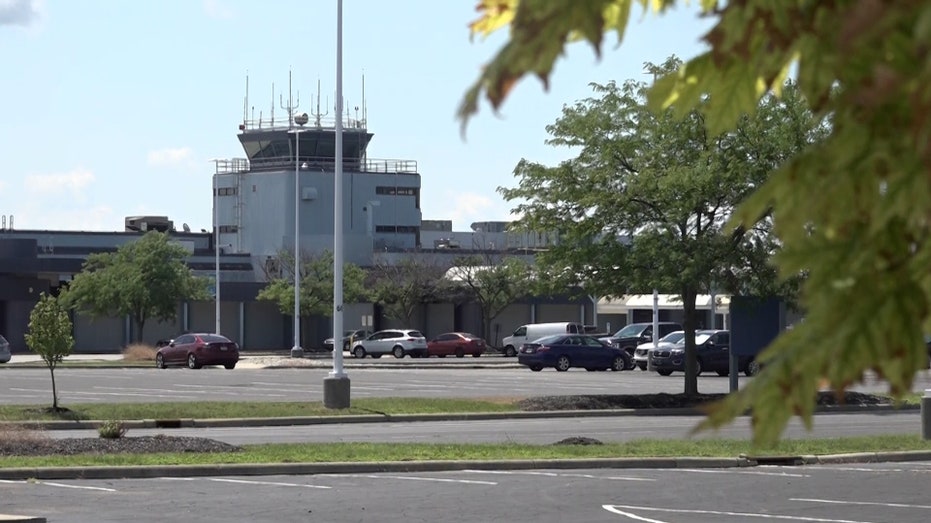Small airports continue to lose regional service amid U.S. pilot shortage
In June, American Airlines announced it was ending service entirely to cities like Toledo, Dubuque, Ithaca and Islip
Regional airports lose service amid pilot shortage
Amid a pilot shortage, major carriers have cut thousands of flights to avoid disruptions – in turn, cutting off the millions of Americans who use regional airports.
TOLEDO, Ohio – At the Toledo Express Airport on a recent Friday, some travelers were surprised to learn that "TOL" was losing its daily flights to Chicago.
"It's going to be a great loss, it's just more convenient," one traveler told Fox Business.
In September, American Airlines will end its service in Toledo and other communities like Dubuque, Iowa, Islip, New York, and Ithaca, New York. When the news was announced, the airline claimed a pilot shortage stood in the way of it continuing those routes.
TRAVEL EXPERT WARNS PILOT SHORTAGE CRISIS WILL GET 'BIGGER AND BIGGER'

In June, American Airlines announced it would end its daily service in Toledo, Ohio and three other cities. (Stephen Goin/Fox News Digital / Fox News)
"We want to fly but can't due to the lack of regional pilots," the airline said in a statement. "We’re extremely grateful for the care and service our team members provided to our customers in Islip, Ithaca, and Toledo, and are working closely with them during this time."
Across the country, similar scenes are playing out in communities that rely on regional airline service.
AVIATION MECHANIC SHORTAGE COULD LEAD TO MORE FLIGHT DELAYS, CANCELATIONS
In a June study, the Regional Airline Association (RAA) reported that 188 communities had lost at least 25% of their airline service from Q1 2019 to Q2 2022, what’s more, 106 communities lost over 25% of their airline service in the same time period.
"We want to fly but can't due to the lack of regional pilots."
- American Airlines Statement
It comes as the U.S. airline industry struggles to hire staff, all while travel demand is soaring. Yet, the nation’s pilot shortage is nothing new. A number of pilots accepted contract buyouts or opted to retire early amid the COVID-19 pandemic when demand was low. Now, every major carrier has cut flight schedules to accommodate the shortage.

All summer, major carriers have cut their flight schedules to accommodate a growing pilot shortage. (Stephen Goin/Fox News Digital / Fox News)
As a result, some travelers tell Fox Business they will have to rethink how they travel as they lose regional airline service.
"We’ll just have to reroute and replan," said Kevin Gutierrez, a traveler at the Toledo Express Airport who was visiting family in the area.
JETBLUE, ALASKA TRIM SCHEDULES AS AIRLINES ATTEMPT SMOOTHER SUMMER
In Toledo, residents will have to drive 1-hour to the nearest large airport in Detroit to catch a commercial flight. The leisure and business travelers who used to fly directly into TOL may be forced to rent cars to bridge that distance, if they continue coming to city at all.
For people like Gutierrez, those extra costs could add up.
"This might limit how often we’re able to visit, if we want to visit twice a year maybe we can only visit once because of the expense so … it was nice while it lasted," he explained.

The Toledo Airport (TOL) lost 46% of its service amid the pandemic, according to the Regional Airline Association. (Stephen Goin/Fox News Digital / Fox News)
Industry experts say regional airports continue to play a big role in U.S. communities despite the pilot shortage.
"Airlines have an impact on the community, on jobs, on growth, on economic development, [these service cuts] will cut people off from everything," said Kathleen Bangs said, a spokesperson for FlightAware.
A former commercial pilot, Bangs told Fox Business the pilot shortage has been exacerbated not only by the pandemic but because of training delays, as well.
CLICK HERE TO READ MORE ON FOX BUSINESS
"When people on leave came back, maybe they went from being a co-pilot to a pilot, or they got an equipment change from a Boeing to an Airbus … that all triggers what we call a ‘training event,’" she said. "It used to take a month and a half to get a pilot through training once they’re hired, now some of the airlines are saying it takes two or two and a half months."
To meet demand, the industry may need to hire 14,500 new pilots every year, through 2030, according to data from the U.S. Bureau of Labor Statistics.





















